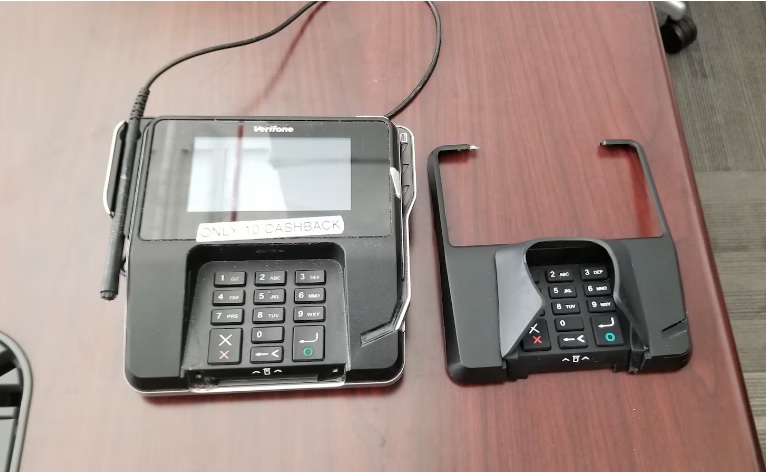Lenoir City, TN (WOKI / WVLT) The Lenoir City Police Department has issued a warning after seeing an increase in credit card skimmers found at local businesses.
A card skimmer is a small electronic device that steals card information at points of sale. They are designed to blend in with legitimate card readers, which makes spotting a skimmer difficult for someone who does not know what to look for.
LCPD officials say, first and foremost, inspect ATMs, POS terminals, and other card readers before using, looking for anything loose, crooked, damaged, or scratched. Also, don’t use any card reader if you notice anything unusual.
In addition, follow the tips below to guard yourself from becoming a victim:
- Pull at the edges of the keypad before entering your PIN. Then, cover the keypad as fully as possible when you enter your PIN to prevent cameras from recording your entry.
- Keep in mind that a pinhole camera may be present anywhere on or around the terminal.
- If possible, use ATMs in a well-lit, indoor location.
- These may still be compromised, but they are less-vulnerable targets.
- Be especially alert for skimming devices in tourist areas, since these are popular targets.
- When possible, use debit and credit cards with chip technology.
- There are fewer devices in the U.S. that steal chip data than magnetic strip data. However, the mag-stripe data on the backs of these cards is still vulnerable.
- Avoid using your debit card when you have linked accounts.
- The card’s compromise will give criminals access to all of the accounts. Use a credit card instead.
- Routinely monitor your credit card, bank and EBT or other benefits accounts to promptly identify any unauthorized transactions.
- If possible, set email or text-message alerts to notify you of card or account transactions.
- Proactively review the account-security options available for any payment cards you use.
- These options can include multi-factor authentication of transactions or freezing an account between your own transactions. These steps may seem inconvenient, but they significantly reduce the risk of financial losses.
- Contact your financial institution immediately if the ATM doesn’t return your card after you end or cancel a transaction.
- This may suggest the presence of a foreign device in the card reader.
- If you receive a call, text or email asking for card information, you should separately contact the relevant state benefits agency to verify the authenticity of the message(s) and/or verify the status of the EBT account and current funds using a known balance inquiry line or website.
- If you receive a call, text or email asking for your PIN, never provide it.
- State benefits agencies won’t request cardholder PINs. They’ll use other means to authenticate your account.
- Always use a strong PIN.
- Avoid using PINs that may be easily guessed, such as strings of the same or consecutive numbers.
- If you suspect your EBT card was compromised in this type of scam, immediately contact your state benefits agency or card issuer.
- Promptly change your PIN if any funds remain in your EBT account.
- Look into whether your account or EBT mobile application will allow you to temporarily block or freeze transactions on the account.




















